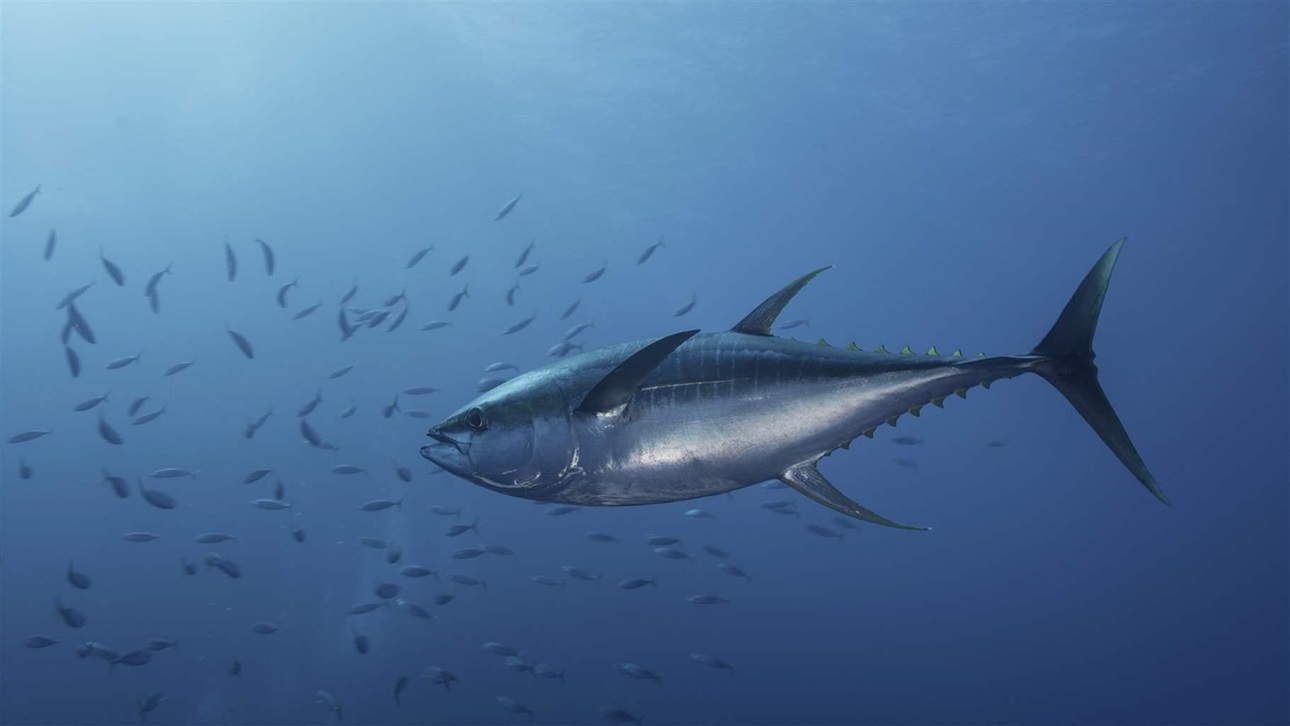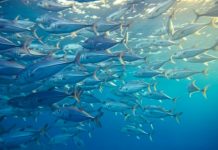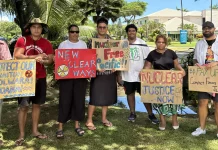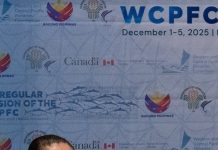Governments also must strengthen the agreement to better guard against overfishing and other ills
By Megan Jungwiwattanaporn
An agreement secured last year that could help end overfishing around the world is awaiting completion within the World Trade Organisation, and WTO members should act quickly to ratify and improve that deal. The Agreement on Fisheries Subsidies, which the WTO adopted in June 2022, prohibits subsidies that enable illegal fishing, fishing of overfished stocks and fishing of unmanaged stocks on the high seas. However, WTO members still need to work on additional provisions regarding subsidies that incentivise fishing beyond sustainable levels.
The need to ratify the agreement now was one takeaway from a panel event co-organised by The Pew Charitable Trusts, Friends of Ocean Action, World Wide Fund For Nature (WWF) and the International Institute for Sustainable Development at the WTO Public Forum 12 to 15 September in Geneva, Switzerland. The forum is the WTO’s largest annual outreach event, bringing together civil society, business, governments and intergovernmental organisations to discuss issues related to world trade.
The Agreement on Fisheries Subsidies is historic, establishing for the first time a set of binding global rules that will require governments to consider the legality and sustainability of the fishing activities they subsidise.
However, the agreement can only enter into force once it has been formally accepted by at least two-thirds of the WTO’s 164 member governments. Further, as part of the agreement, trade ministers committed to continue negotiations on overfishing and overcapacity—which is a fleet’s ability to harvest more fish than is sustainable—and to recommend new rules based on those negotiations at the February 2024 ministerial conference in Abu Dhabi, United Arab Emirates.
And in fact, at the Public Forum, panelists emphasised the need for an ambitious result from the second wave of negotiations in order to support fishing communities, protect the world’s ocean and build resilience to climate change.
Heike Vesper, chief executive, transformation politics and markets at WWF Germany, said implementing the agreement is critical to safeguarding ocean health, as is finalising the additional rules. She noted that the current agreement is an important first step but added that harmful subsidies do damage beyond the situations covered by the agreement. And the ongoing negotiations represent a big opportunity to strengthen the agreement to ensure that subsidies do not contribute to overfishing and overcapacity, and that fisheries management measures are effective, without loopholes that could lead to subsidising overfished stocks. Having comprehensive rules will be a big step forward in protecting the environment and improving food security.
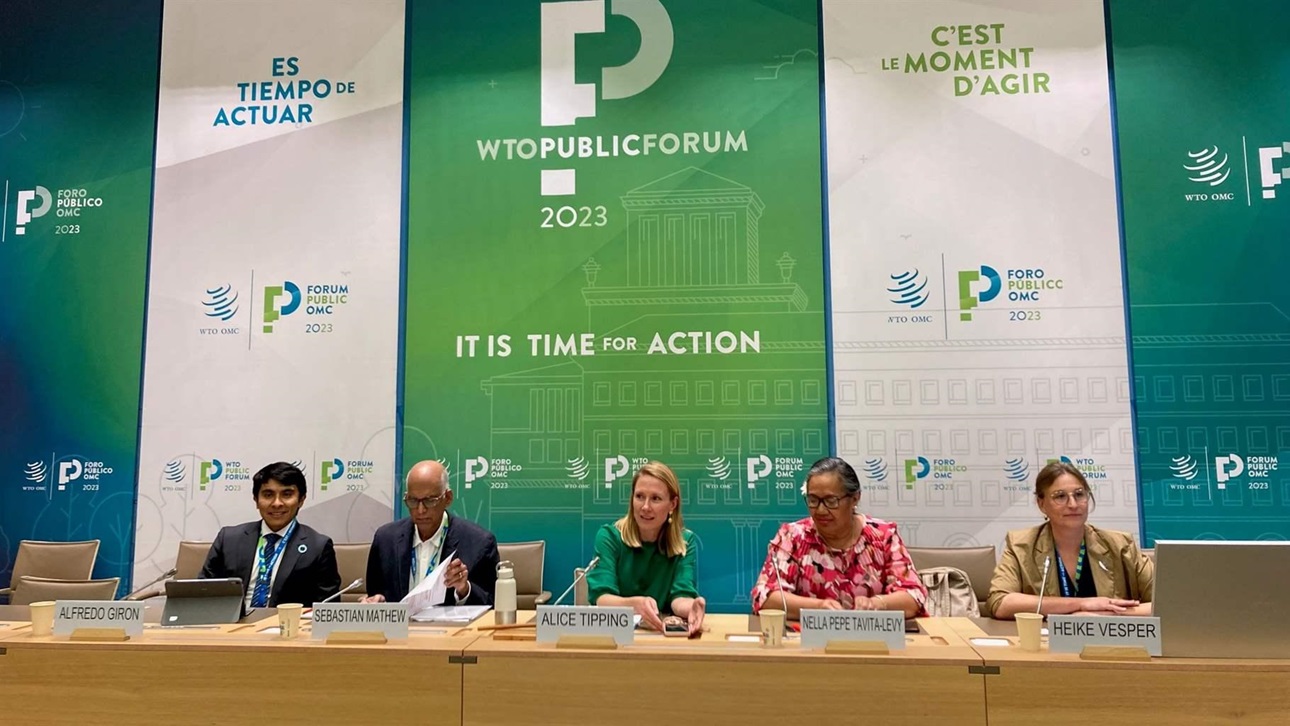
Sebastian Mathew, executive director of the International Collective in Support of Fishworkers, emphasised how the new agreement could support the coastal communities that depend the most on healthy marine resources, including artisanal fishing communities. Although one of the key questions in the current negotiations is how rules will apply to small-scale fishers, exemptions for this group will need to be thoughtfully applied. The new negotiations must contribute to having better resource management that will allow small-scale fishers access to healthy stocks.
Ambassador Nella Pepe Tavita-Levy, permanent representative of Samoa to the United Nations and other international organisations in Geneva, made clear that additional rules on subsidies are needed and are a priority for the Pacific region. She noted that the six island nations that make up the Pacific negotiating group of the WTO were disappointed that a complete and ambitious agreement was not reached last year, since the region faces considerable fishing pressure from subsidised foreign fleets. Complementing the Agreement on Fisheries Subsidies with additional rules to reduce capacity and address overfishing will help ensure resources’ long-term sustainability.
Alfredo Giron, head of the World Economic Forum’s Ocean Action Agenda and Friends of Ocean Action, showed how business and policy transformations are possible for a sustainable ocean and discussed how the fishing industry needs to adapt its business model to remain profitable once the fisheries subsidies reform measures have been implemented. The industry is under increasing scrutiny—including scrutiny of its sustainability certification programmes—and fisheries subsidies now need to be part of the public accountability to help keep companies fishing competitively and sustainably.
Currently, a third of fish stocks are exploited beyond sustainable levels, according to the United Nations Food and Agriculture Organisation, yet governments have been providing fishing fleets an estimated US$22 billion every year in harmful subsidies to help them increase fishing capacity. Stakeholders around the world and across a breadth of sectors—from government, industry and civil society—are calling on WTO members to fulfil the promise of the agreement they adopted by strengthening, ratifying and implementing this deal as soon as possible.
SOURCE: PEW/PACNEWS






